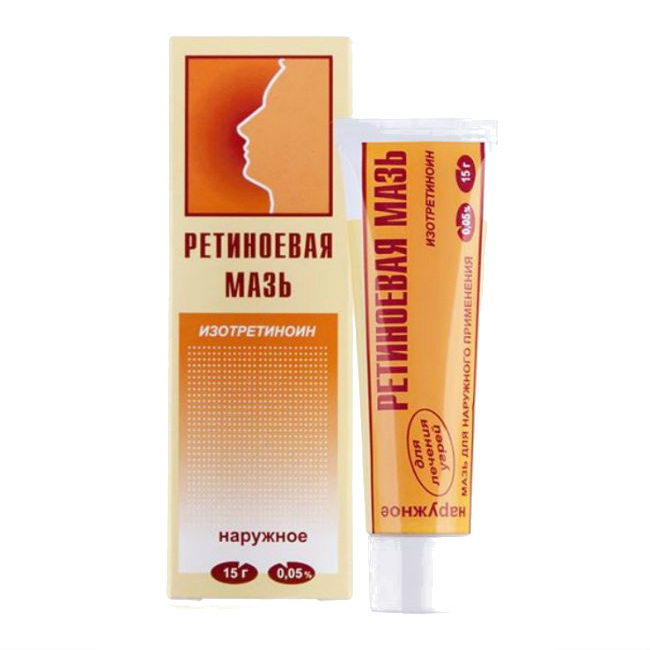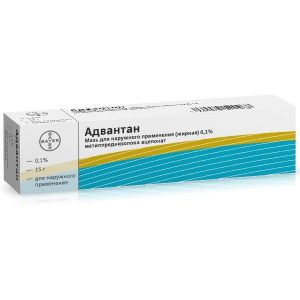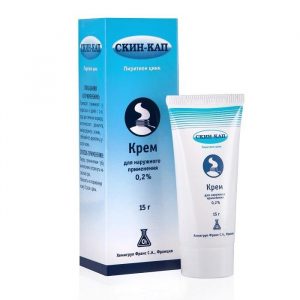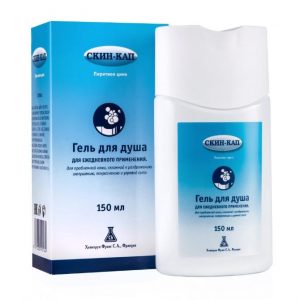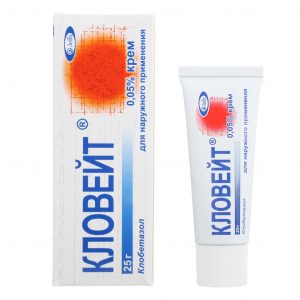Description
Pharmacological action
An agent for treating acne. It contributes to the normalization of terminal cell differentiation, inhibits the hyperproliferation of the epithelium of the excretory ducts of the sebaceous glands, the formation of detritus and facilitates its evacuation. Due to this, the production of sebum is reduced, its release is facilitated, the composition is normalized, and the inflammatory reaction around the glands is reduced. For external and systemic use, it has antiseborrheic, sebostatic, anti-inflammatory, kerato-and immunomodulatory effects enhances the regeneration processes in the skin.
Indications
For oral administration: severe forms of nodular-cystic acne, especially with localization on the trunk. For rectal use: severe recurrent forms of acne, rash with concomitant seborrheic process. For external use: papulopustular acne, seborrhea, rosacea, perioral dermatitis.
Contraindications
Pregnancy, established and planned, lactation, hypersensitivity to isotretinoin, simultaneous use of tetracycline antibiotics. For oral administration: severe dysfunction of the liver and / or kidneys, hypervitaminosis A, significantly increased plasma lipids, neoplasms. For rectal use – diseases of the rectum.
Recommendations for use
For oral administration, the initial dose is 500 mcg / kg / day, the maximum daily dose is applied for a limited time and is 1 mg / kg, the maintenance dose is 0.1-1 mg / kg / day, the duration of treatment is 16 weeks, the second course is carried out with interval of 8 days. Take with food in 1 or more doses. Rectally – 0.5-1 mg / kg 1 time / day at night (in the supine position), the course of treatment is 8-12 weeks, the intervals between courses are 1-2 months. The ointment is applied a thin layer on the affected skin 2 times / day. The duration of treatment is 4-6 weeks.
Special instructions
Rectally and externally used with caution in diseases of the liver, kidneys, chronic pancreatitis, decompensation of cardiac activity, chronic intoxication (including alcohol). With rectal and external use with a sharply expressed reaction of exacerbation (on the 1-2nd week of treatment), it is recommended to cancel the treatment for several days before it subsides, then therapy can be resumed. When taken orally, regular monitoring of liver function and plasma lipid levels is required before treatment, 1 month after the start of therapy, and then every 3 months. With diabetes, obesity, alcoholism or lipid metabolism disorders are recommended more frequent monitoring of laboratory parameters. With diabetes or suspected diabetes, it is necessary to strictly control the level of glucose in the plasma. With prolonged use, the development of symptoms of chronic hypervitaminosis A. is possible. During the treatment period or for some time after its completion, donors for women of childbearing age cannot be donated. Against the background of therapy, patients should not be prescribed UV therapy, patients should avoid direct exposure to sunlight. During treatment, intolerance to contact lenses may occur. The safety of use in children and prepubertal patients has not been established. The simultaneous use of isotretinoin and 19-nortestosterone derivatives should be avoided. especially in patients with gynecological / endocrinological diseases. The simultaneous use of other drugs with keratolytic or exfoliative properties (including other retinoids), as well as progesterone in microdoses (including mini-pill preparations), is not recommended.
Composition of
Ointment for external use 0.05% 1 g of isotretinoin 500 mcg
Side effects
Dermatological reactions: dry mucous membranes, skin rash, dermatitis, pruritus, cheilitis, erythema (especially on the face), sweating, palmar plantar peeling, paronychia, nail dystrophy, increased proliferation of granulation tissue – rarely thinning of the granulation tissue in the affected area hair, vasculitis, photosensitivity. From the sensory organs: conjunctivitis, photophobia, decreased night vision, clouding of the cornea, hearing loss. From the side of the central nervous system and peripheral nervous system: headache rarely – depression, convulsive seizures, a tendency to suicide in isolated cases – intracranial hypertension. From the digestive system: nausea rarely – colitis, bleeding from the digestive tract, a transient increase in the activity of hepatic transaminases in isolated cases – hepatitis. From the hemopoietic system: anemia, neutropenia, a change in platelet count, increased ESR. From the side of metabolism: increased concentration of TG, glucose. From the musculoskeletal system: pain in muscles and joints rarely – hyperostosis. Other: nosebleeds. With rectal and external use: at 1-2 weeks of treatment, new rashes, itching, swelling and redness of the skin may appear.
Active ingredient
Isotretinoin
Terms of delivery from
pharmacies Without a prescription
dosage form
ointment
